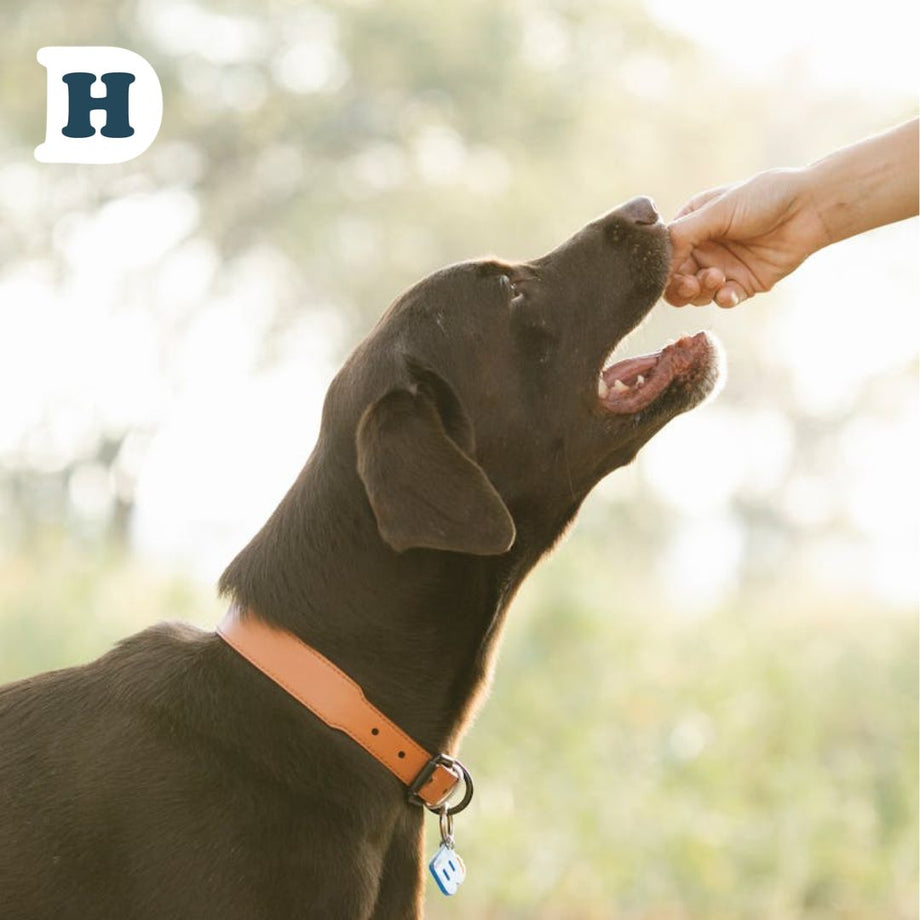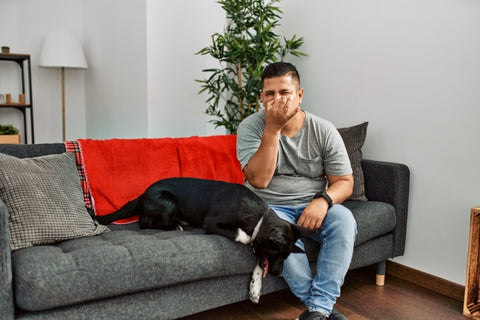
Whether you call it "passing gas," "breaking wind," or simply "farting," dog flatulence can be a stinky and unpleasant problem to deal with. If you're constantly battling the odour from your furry friend's back end, you're not alone. Many dog owners struggle with excessive gas and are desperate to find effective ways to control it.
Here at Delivery hound HQ, we'll explore some tried-and-true strategies to help you combat dog flatulence and restore a serene atmosphere in your home. From dietary adjustments to mindful exercise routines, we'll cover a range of methods that have proven successful in curbing doggie gas.
You love your four-legged companion, but being hit by a cloud of noxious fumes every time they let one rip is not exactly the bonding experience you had in mind. With our expert tips and guidance, you can say goodbye to the embarrassing and malodorous moments, and enjoy a more pleasant coexistence with your beloved pup.
No more turning up your nose or scrambling for air freshener - it's time to regain control over dog flatulence and transform your living environment into a gas-free zone. Let's get started!
Health implications of dog flatulence
Dog flatulence may seem like a harmless and humorous issue, but it can actually have underlying health implications. Excessive gas can be a symptom of digestive problems, food allergies, or gastrointestinal disorders. It's important to address the issue to ensure your dog's overall well-being.
One of the main concerns associated with dog flatulence is the discomfort it causes your furry friend. Just like humans, excessive gas can lead to bloating, abdominal pain, and general discomfort. Additionally, the foul odor can be a sign of an unhealthy gut, indicating an imbalance in the digestive system.
If left untreated, chronic flatulence can also lead to more serious health conditions. It can be a symptom of underlying gastrointestinal issues such as inflammatory bowel disease or pancreatitis. Therefore, it's crucial to take action and implement strategies to control dog flatulence. Learn more here about gut health in our blog, A Guide to Knowing the Signs of Poor Gut Health in Dogs.
Understanding dog flatulence
To effectively control dog flatulence, it's important to understand its causes. When dogs eat, they swallow air along with their food. This air travels through the digestive system and is eventually released as flatulence. Certain breeds, such as brachycephalic breeds with short snouts, are more prone to swallowing excessive air, leading to increased flatulence.
Apart from swallowing air, the food your dog consumes plays a significant role in the production of gas. Some ingredients, such as beans, lentils, and certain grains, are known to cause gas in dogs. Additionally, food allergies or sensitivities can contribute to flatulence.
Another factor to consider is the speed at which your dog eats. Rapid eating can result in excessive air intake, which in turn leads to more flatulence. Dogs that gulp their food without chewing properly are more likely to experience digestive issues and gas.
By understanding the causes of dog flatulence, you can implement targeted strategies to reduce gas production and improve your dog's digestive health.
Common causes of dog flatulence
Dog flatulence can have multiple causes, and identifying the root of the problem is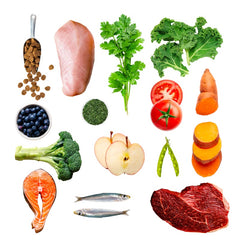 essential in finding effective solutions. Here are some common causes of dog flatulence:
essential in finding effective solutions. Here are some common causes of dog flatulence:
1. Dietary factors: Certain foods are notorious for causing gas in dogs. Ingredients such as beans, lentils, soy, and certain grains like wheat and corn can lead to increased flatulence. Identifying and eliminating these ingredients from your dog's diet can help reduce gas production.
2. Food allergies or sensitivities: Dogs, like humans, can develop allergies or sensitivities to certain foods. These allergies can manifest as excessive gas, along with other symptoms like itching, diarrhea, or vomiting. Consult with your veterinarian to determine if your dog has any food allergies and to develop an appropriate diet plan.
3. Gastrointestinal disorders: Underlying gastrointestinal disorders, such as inflammatory bowel disease or pancreatitis, can cause chronic flatulence in dogs. These conditions require proper diagnosis and treatment from a veterinarian to effectively manage gas production.
4. Eating habits: Dogs that eat too quickly or gulp their food without chewing properly are more likely to swallow excess air, leading to increased flatulence. Slow feeder bowls or puzzle feeders can help regulate eating speed and reduce air intake.
By identifying the specific cause of your dog's flatulence, you can tailor your approach to effectively control and manage gas production. In the next sections, we'll explore different strategies that can help you combat dog flatulence.
Tips for controlling dog flatulence through a grain-free diet
When it comes to managing dog flatulence, dietary adjustments are often the first line of defense. One effective approach is to switch to a grain-free diet such as Man's best Premium Grain Free Dog Food. Grains, such as wheat, corn, and soy, can be difficult for dogs to digest, leading to increased gas production. By eliminating grains from your dog's diet, you can alleviate digestive stress and reduce flatulence.
When selecting a grain-free dog food, opt for high-quality brands that prioritise natural ingredients. Look for formulas that contain easily digestible protein sources, such as chicken, fish, or lamb. These proteins are less likely to cause digestive upset and gas.
In addition to going grain-free, it's important to provide a well-balanced diet that meets your dog's nutritional needs. Look for dog foods that are specifically formulated to promote digestive health and support a healthy gut flora. These 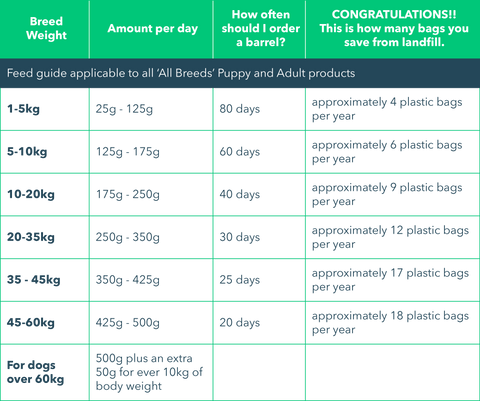 formulas often contain prebiotics and probiotics, which help maintain a balanced gut microbiome and reduce gas production.
formulas often contain prebiotics and probiotics, which help maintain a balanced gut microbiome and reduce gas production.
Keep in mind that dietary changes should be implemented gradually to avoid gastrointestinal upset. Introduce the new food gradually, mixing it with your dog's current food over a period of several days. Monitor your dog's response to the new diet and make adjustments as needed. More information on transitioning to a new dog food is available on our blog here!
By switching to a grain-free diet and providing your dog with a balanced and easily digestible food, you can significantly reduce flatulence and improve their overall digestive health.
The role of probiotics in managing dog flatulence
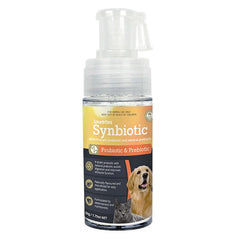 Probiotics are beneficial bacteria that help maintain a healthy balance of microorganisms in the gut. They promote digestion, aid in nutrient absorption, and support a strong immune system. Probiotics can also play a crucial role in managing dog flatulence.
Probiotics are beneficial bacteria that help maintain a healthy balance of microorganisms in the gut. They promote digestion, aid in nutrient absorption, and support a strong immune system. Probiotics can also play a crucial role in managing dog flatulence.
When dogs experience gas, it can often be a sign of an imbalance in their gut flora. Introducing probiotics into their diet can help restore this balance and reduce flatulence. Probiotics work by colonising the gut with beneficial bacteria, which in turn helps improve digestion and reduces gas production.
When selecting a probiotic supplement for your dog, opt for a high-quality product specifically formulated for canines. Look for supplements that contain a variety of beneficial bacteria strains, as different strains offer different benefits. The supplement should also be formulated to survive the acidic environment of the stomach and reach the intestines, where it can have the most impact.
Introduce probiotics gradually into your dog's diet, following the recommended dosage instructions. Monitor your dog's response to the supplement and consult with your veterinarian if you have any concerns or questions.
By incorporating probiotics into your dog's daily routine, you can support their digestive health, restore a healthy gut flora, and minimise flatulence.
Lifestyle changes to minimise dog flatulence
In addition to dietary adjustments, certain lifestyle changes can help minimise dog flatulence. By implementing these changes, you can create an environment that promotes healthy digestion and reduces gas production. Here are some lifestyle tips to consider:
1. Slow and mindful feeding: Encourage your dog to eat slowly and mindfully. Use slow feeder bowls or puzzle toys to slow down their eating pace. This reduces the amount of air they swallow during meals and helps prevent excessive gas.
2. Regular exercise: Regular exercise not only keeps your dog physically fit but also promotes healthy digestion. Engage your dog in daily exercise routines such as walks, play sessions, or interactive toys. Physical activity helps stimulate the digestive system and reduces the likelihood of flatulence.
3. Avoiding table scraps: While it can be tempting to share your meal with your dog, table scraps can contribute to gas production. Human food, especially fatty or spicy foods, can be difficult for dogs to digest and may cause gastrointestinal upset. Stick to a balanced and appropriate diet for your dog to minimize flatulence.
4. Stress reduction: Just like humans, dogs can experience stress, which can impact their digestive health. Minimise stressors in your dog's environment and provide a calm and relaxing atmosphere. This can be achieved through routines, comforting toys, or even soothing music.
Implementing these lifestyle changes alongside dietary adjustments can significantly improve your dog's digestive health and reduce flatulence. Monitor your dog's response to these changes and make adjustments as needed.
Dealing with dog flatulence can be a challenging and unpleasant experience. However, with the right strategies and a little patience, you can regain control over gas production and restore a serene atmosphere in your home. By understanding the causes of dog flatulence, implementing dietary adjustments, incorporating probiotics, and making lifestyle changes, you can effectively manage and reduce flatulence.
Remember to consult with your veterinarian for personalised advice and guidance. Every dog is unique, and what works for one may not work for another. With a tailored approach and consistent effort, you can conquer dog flatulence and enjoy a gas-free coexistence with your beloved pup.
No more turning up your nose or scrambling for air freshener - it's time to say goodbye to stinky moments and embrace a serene and odor-free living environment. Take the first step today and start implementing the strategies outlined in this article. Your dog will thank you, and you'll both enjoy a more pleasant and gas-free life together.
©deliveryhound.com.au 2023


